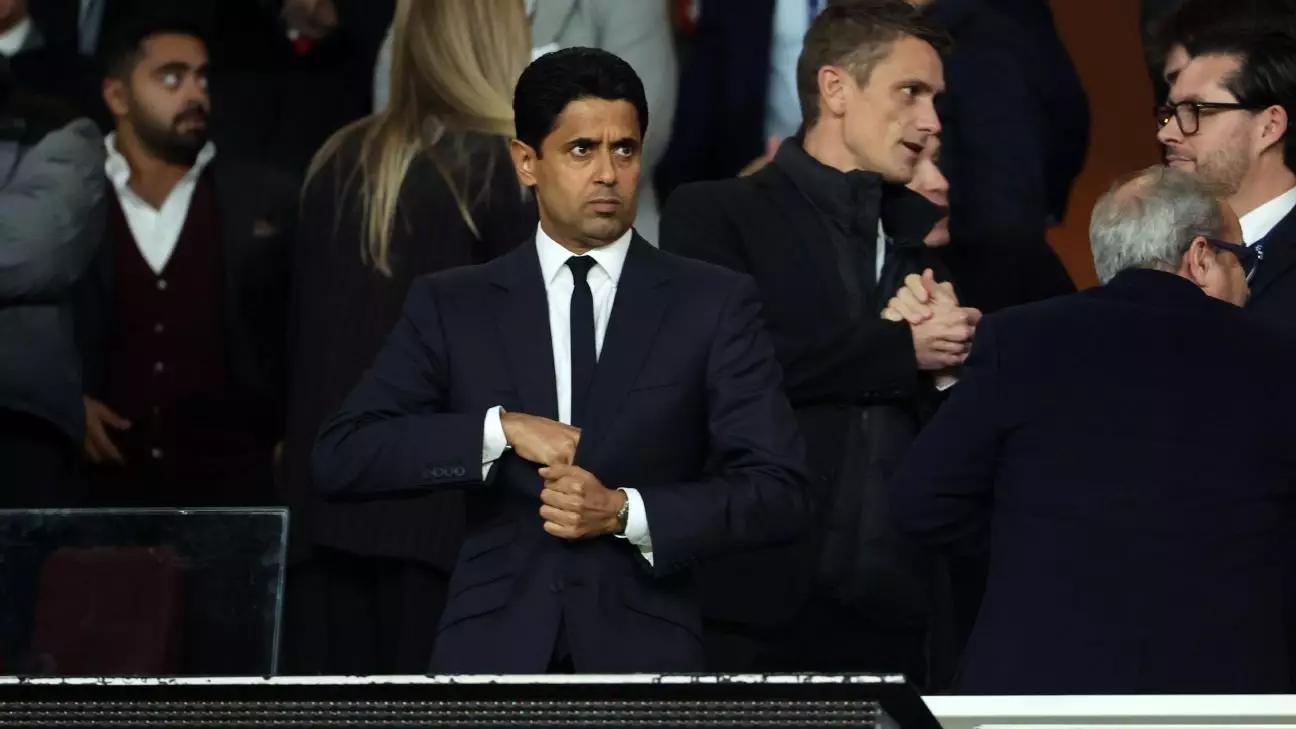The expansion of the FIFA Club World Cup has ignited passionate debates among football stakeholders. As an ambitious tournament set to debut in the summer of 2025, its new format—encompassing 32 teams over a four-week schedule—places significant pressure on players and clubs, particularly those from leagues with demanding fixtures. Amidst the tension surrounding this event, Paris Saint-Germain’s president, Nasser Al-Khelaïfi, has emerged as a vocal proponent, challenging critics and urging collaboration for the future of the sport.
FIFA’s revised Club World Cup is poised to take place in the United States, with the promise of thrilling matchups and international representation from a diverse array of clubs. Transitioning from a smaller, more exclusive format to a grander affair, the Club World Cup seeks to amplify football’s global reach. Still, this shift brings with it questions regarding player welfare, competition balance, and the grueling schedules teams will face.
Clubs like Manchester City and Real Madrid are apprehensive about the implications of an extended competitive season, which could stretch to approximately eleven months for those who progress far into the tournament. It’s important to recognize the conflicts at play: while the expansion may invigorate fan interest and foster international growth, it raises legitimate concerns about how well clubs can manage player fatigue and performance throughout an already congested calendar.
Al-Khelaïfi’s stance is resolute. He argues that clubs that reject the tournament’s format should simply choose not to participate. In a recent media event in Athens, he remarked, “If you have a complaint, don’t play,” presenting a bold response to criticisms regarding the tournament’s impact. He acknowledges that despite players’ concerns, club executives see the potential of the tournament to recoup increasing wages and operating costs.
His assertion highlights a deeper truth in the commercial world of modern football: financial sustainability is a pressing concern for clubs. With player salaries spiraling upwards, Al-Khelaïfi suggests that the new revenue streams offered by events like the Club World Cup are essential for clubs to maintain their financial health. His rationale becomes clear: the dynamics of football involve balancing player welfare against the necessity of viable economic strategies.
While Al-Khelaïfi dismisses some complaints, he also recognizes that managing the football calendar is a perennial point of contention. The call for open dialogue among stakeholders is critical. It signifies a willingness to critically address the constraints imposed by dense schedules while also aiming for collective growth within the sport. Additionally, the ECA’s acknowledgment of the inherent challenges in launching a new tournament format indicates an understanding that compromise may be necessary to accommodate various perspectives.
Premier League managers, like Pep Guardiola, have pointed to the complications this competition creates, with requests for schedule adjustments often falling on deaf ears. Guardiola’s plea for a delayed start to his club’s season underscores the logistical dilemmas that clubs face when balancing domestic commitments with international tournaments. His comments remind us that while the idea behind expanding competitions may be beneficial for the sport’s global agenda, the realities of implementation can create friction.
Looking ahead, the success of the FIFA Club World Cup will ultimately depend on how well clubs, players, and organizing bodies can collaborate to tackle the multifaceted challenges of this new format. The optimism expressed by club executives like Al-Khelaïfi signifies an opportunity that could elevate club football to new heights. However, the concerns voiced by players must be heard and adequately addressed to safeguard human capital—the athletes who drive the game’s popularity.
Both fans and stakeholders alike will watch how this evolving narrative unfolds as the tournament approaches. Striking a balance between innovative expansions and the pressing needs of players represents one of the most significant tests for football’s governing bodies in the coming years. If managed delicately, this could indeed be a transformative period for football, blending tradition with new opportunities in a way that respects the sport’s core—which is, after all, about the players on the pitch and the fans in the stands.
